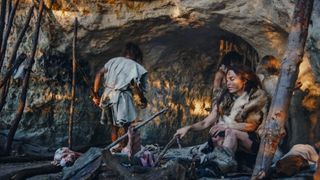Sarah A. Lacy is a biological anthropologist specializing in paleoanthropology and bioarchaeology. She received a BS in anthropology from Tulane University in 2008 and a PhD in anthropology from Washington University in St. Louis in 2014. Lacy explores dental cavities, periodontal disease, and tooth loss in Neandertals and early modern humans across Europe and Southwest Asia and given the prevalence among recent humans. More than just oral health, she looks at how oral diseases also reveal information about diet, environment, disease susceptibility, and overall health in individuals and populations. Her latest project explores the reliability of bony indicators of respiratory health, their presence in ancient populations, and how they might correlate with oral health. Smoke inhalation is as ancient as the domestication of fire, and Lacy is collaborating with colleagues in the fields of human biology and archaeology to identify the health impacts of close human relationships with fire over the last half a million years. Lacy also publishes on issues of sex and gender in the Paleolithic as well as in the field of anthropology. Her research expertise translates to teaching interests in biological anthropology, human health, and human-environment interactions. She has a strong interest in supporting undergraduate research opportunities. She was interim director of the Office of Undergraduate Research at California State University, Dominguez Hills.
